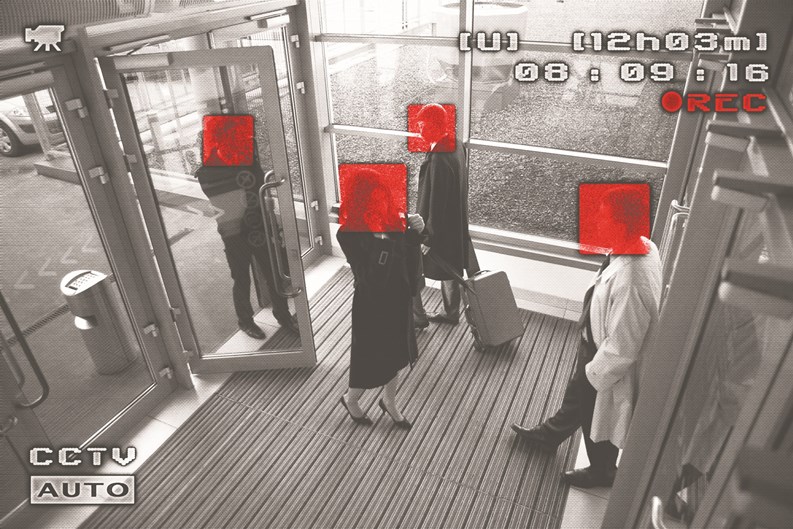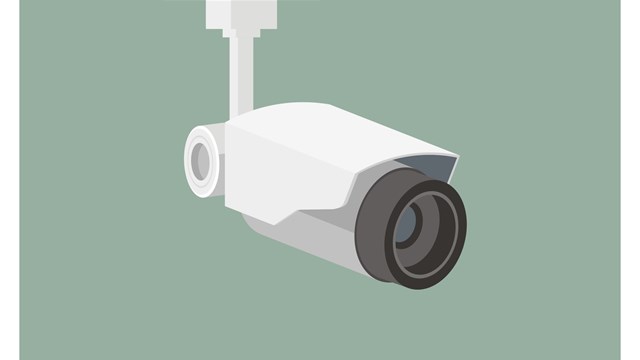George Orwell’s dystopian novel 1984 was all about how Big Brother was watching us. It isn’t hard to imagine what Orwell would think about today’s technologically-advanced world, where there are full-body scans at the airports, photos snapped by smartphones without permission, and cameras in hallways monitoring our every move. It has been more than three decades since the actual 1984 passed, and Orwell seems to have gotten it right — Big Brother is watching far more often than we realize, even in our own co-op and condo buildings.
Spy Games?
Surveillance equipment installed in common areas of co-op and condo buildings isn’t there to spy on what the residents are doing in their units, of course. Quite the contrary. The cameras are there to keep residents safe and their property secure, and to deter (and/or record) any wrongdoing by residents or outside intruders. “It’s a good idea to use cameras in common areas, because you can see people who get access to the building,” says Ed Mackoul, president of Mackoul & Associates, an insurance firm based in Island Park.
Years ago, surveillance of a building only consisted of a lonely guard who would spend many man-hours looking at feeds from cameras placed throughout the building (sometimes it was only one placed just in the lobby). “Today, you don’t need that manpower,” says Leni Morrison Cummins, an attorney with the Philadelphia-based law firm of Cozen O’Connor. “When there are incidents in a building, you can just narrow down digital footage to show you what was happening 10 minutes before and after when you think the person came in.”
One such example of how successful this technology can be occurred in September of this year when video cameras installed outside several apartment buildings in the Chelsea area of Manhattan captured the horrific explosion that injured dozens of people. Law enforcement professionals are able to examine these videos closely to discover the details they need to find and arrest the responsible parties.
Attacks such as the one in Chelsea are among the reasons, Cummins says, that security in residential buildings has gotten tighter over the years. “Surveillance in co-op and condo buildings is tighter, but that’s both a product of terrorism and crime, as well as a product of technology. Technology is more accessible today, and it’s also less expensive and has better quality.”
Unfortunately in some cases, residents feel that the surveillance systems that have been installed to watch for intruders and provide valuable information to the board and law enforcement are not protecting them, but instead are invading their privacy. Some residents have even sued or threatened to sue their boards for invasion of privacy for positioning cameras and other monitoring equipment in hallways and other common spaces.
According to Mackoul, however, “The truth is that instances of invasion of privacy hold no weight unless cameras are actually being pointed into the apartment.”
A Watchful Eye
But do the co-op and condo buildings even have the right to install these improved security systems equipment at all? “Legally, co-ops have the authority that is written in the proprietary lease to prescribe the manner of operating the building,” says Cummins. “Likewise in condos, where managing agents have the power from the condo board to maintain the common elements. Then there’s also the business judgment rule where boards have the authority to act in the best interest of the owners without the need for approval of the residents.”
“The board has the power to install security systems where they deem it appropriate,” says David L. Berkey, partner with Gallet Dreyer & Berkey LLP in Manhattan. “There has even been a case where a board was sued because it was said that the camera showed the interior of an apartment, but that wasn’t the intent of the camera, it was happenstance. The court didn’t find that to be a violation.”
The pros agree that in an area where there is a reasonable expectation of privacy, the board is not allowed to put a camera. In a vestibule or lobby, or other common area where there is no expectation of privacy, the board is in its right to install cameras and other surveillance equipment.
If a resident decides to sue a board for invasion of privacy, Mackoul says that the board is also protected under the directors and officers liability insurance (often called “D&O”). D&O insurance is designed to fill the coverage gaps of their commercial general liability (CGL) policy, and coverage is the same for both co-ops and condos.
One thing that is an absolute no-no for boards is to install any audio surveillance equipment. In other words, the equipment can watch what other residents and guests are doing in the common areas, but cannot listen. “It’s an illegal violation of the federal wiretapping laws,” Cummins says.
While the board has the right—and duty—to do what they can do to protect their buildings and residents, the residents cannot, on the other hand, put cameras wherever they want just because they want to protect their own unit. However, the situation also depends on what the board allows and what the cameras are doing.
In a real-life court case, Mr. and Mrs. Bank moved into a building in 2000 and Abbas Abdulaziz purchased his unit in March, 2001. The Banks said that three years later, Abdulaziz had installed cameras and eavesdropping equipment in the common hallways outside his unit, which is in violation of both state and federal law. The Banks had other complaints about Abdulaziz, including the fact that he had installed entry doors that do not match the other entry doors in the condominium, and placed furnishings in the common hallways. The Banks believed that Abdulaziz had recorded their movements and conversations.
As it turned out, the Banks could not adequately prove their case, and the courts found in favor of Abdulaziz. “If a resident wants to put a camera in their own apartment, that’s okay, unless something prohibits it in the bylaws or lease,” says Berkey, “but it can’t be in the apartment facing out.”
Do It Right, Or Not at All
The most important advice that Cummins has for boards on surveillance equipment that either residents or the board can use? “Adopt a written, very detailed policy on security measures,” she says. “Having guests sign in and out of the building is a very good idea. Requiring guests who are there without the owner present have to have a name on record is good. Remember, boards can’t go so far as to contradict their own governing documents.”
Berkey also recommends that boards simply do not install systems that wouldn’t comply with the law. “For example, the penal law establishes penalties for unauthorized eavesdropping. You have to have one consenting party to a conversation in order to have recorded it. If you are generally surveilling an area and they are talking, it would be a violation.”
If residents really do believe that a co-op or condo board is going too far with their surveillance equipment or policy, Berkey says that the best way to stop it from continuing is to get political. “Throw a board out if they are too ‘big brotherish,’ and elect a board that is more in tune with what your beliefs are,” he says, adding that he gives his clients an outline of what’s allowed and what isn’t allowed when it comes to surveillance equipment.
Mackoul reminds residents and boards that a proper security system for a building means more than just installing cameras. “It also means things like having restrictions that allow people on the roof, installing window bars to protect children, and even installing lights that function properly,” he says.
He says that he has even seen some buildings try to use fake cameras as a deterrent to criminals, but strongly cautions against this supposedly-clever workaround. “If something happens and the cameras didn’t catch anything because they were fake, that could be a real problem regarding insurance,” he says.
“Burglaries, robberies and muggings are an unfortunate fact of life and it’s the building’s responsibility to provide a secure living environment,” says Patricia M. Batih, vice president of sales at Mackoul & Associates. “Intercom systems, locked doors and keypad entry are a start, but they can also provide a false sense of security. Closed circuit television and/or a 24-hour doorman are a definite deterrent for anyone thinking of committing wrongful acts.”
In New York City, crime statistics for all robbery and grand larceny have dropped compared to last year (and several preceding decades), but having the proper surveillance equipment in place to protect residents and staff is important. Today, surveillance equipment is also important when it comes to fighting terror attacks. Investing in the right system for your building is the first step to keeping everyone safe.
Lisa Iannucci is a freelance writer, author, and regular contributor to The Cooperator.










Comments
Leave a Comment